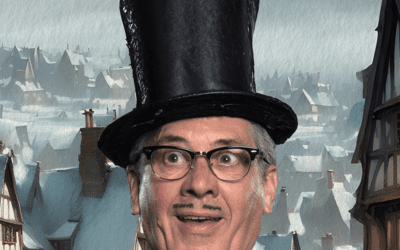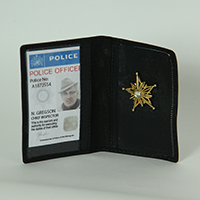“One of the greatest ‘undiscovered’ comedy characters on the Fringe is due for recognition”
The Telegraph, August 2004
One of the greatest ‘undiscovered’ comedy characters on the Fringe isdue for recognition, says Mark Monahan
For some years now, Count Arthur Strong has been one of the mostintensely admired acts at the Edinburgh Fringe. Fellow comedians (amongthem no lesser luminaries than Ross Noble and Noel Fielding) discuss himin awed tones; critics fight for superlatives with which to garland him;and yet the chances are that all but the most committed Edinburgh punterhas never even heard of him.
It wasn’t until last year that I finally got round to seeing the Countfor myself, but, when I did, I soon found my stomach near-cramped withlaughter.
Like every loopy elderly relative there’s ever been, this blundering,deluded old luvvie lurched on stage to deliver an epic lecture, “TheGreatest Story Ever Told”, but it rapidly nosedived and concluded withhim magnificently smashed, reeling off a recipe for “lamb of God” andbeating all hell out of a plastic cherub.
The Count – who returns this year for a so-called “book lunch” for hisdiaries, “Through It All I’ve Always Laughed” – is the creation of SteveDelaney, who writes and performs the show. Meeting him is a doublyintriguing prospect: not only is it impossible to visualise him out ofcharacter, it’s also hard to imagine the inspiration for this bizarrecreation, the superannuated boss and sole proprietor of an acting schoolin Doncaster.
In the flesh, Delaney turns out to be recognisable as the man behind theCount, though smaller, younger and (mercifully) saner. In fact, heinsists that there’s nothing wrong with the Count’s mental health(though he adds, mischievously, “at least, that’s how he sees it”), andis not entirely sure himself about the character’s origins.
“He’s grown in an instinctive way,” he says, “but, at the same time, Ithink he’s perhaps an amalgam of a million things that I was half awareof as a kid. The place where I grew up in Leeds was full of rich,interesting characters. My next-door neighbour, Uncle Willy, was chiefelectrician at the Grand Theatre, though really of the old school – heused to wear a dinner suit with a wing collar and pince-nez glasses onthe first night. But he was slightly mad as well. So much of it is usingthe shortcomings of a Northerner who thinks he isn’t a Northerner – thatspecial sort of pompousness.”
Now married with one child, Delaney first created the Count more than 20years ago, when he was a drama student at Central college in London.They were doing a circus project, and he originally conceived him as a”slightly off-the-wall” strongman (hence the self-aggrandising name).
Although the count proved a hit in an end-of-term show, Delaney didnothing more with him, paying his way instead with appearances in AllCreatures Great and Small, Casualty and the like.
In 1997, however, at the repeated suggestion of a former tutor, Delaneygave the old buffoon one more outing, in a north London club, and itwent so well that he decided to take him on permanently. Since then, hehas toured widely, done several Edinburghs and received glowing notices.Yet, for all this, he remains a cult figure.
Delaney acknowledges that this may be because the Count is just “toomuch” for many, as perhaps demonstrated by the markedly premature exitof three people during the first preview in Edinburgh. Those who stayed,however, were well rewarded.
The launch format for “my first dictionaries of mine I’ve done” givesendless rein to the Count’s dementia and delusion. He turns to one ofmany Pepysian pages at random (“Still raining. No Post today. Getbatteries.”), while dismissing Mr P as a bad speller and excavating along-forgotten coathanger from the jacket he’s wearing (“That’s whereone of those is!”).
Meanwhile, as the six glasses of bubbly that he drinks progressivelykick in, his presentation descends into a spiral of excruciating,bewildered silences, loopy syntax (“You really are a terrific bunch, Ireally do”), and limitless confusion (“Proceeds are going to myfavourite charity, Stop the Dolphin… No! Stop the Orphan…”), andnever for one second does the mask slip.
Delaney, who guards his age for the sake of the character, admits that alittle more fame wouldn’t hurt, but acknowledges that the Count willalways divide audiences much as he has always, apparently, split thePerrier panel.
“There’s nothing like playing to a large, packed theatre,” he says, “butI have to be realistic about what I do. It’s never going to appeal toeverybody – people are going to hate it as much as other people like it.And I think that’s the way it should be.” The Count couldn’t have put itbetter himself.
Mark Monahan


